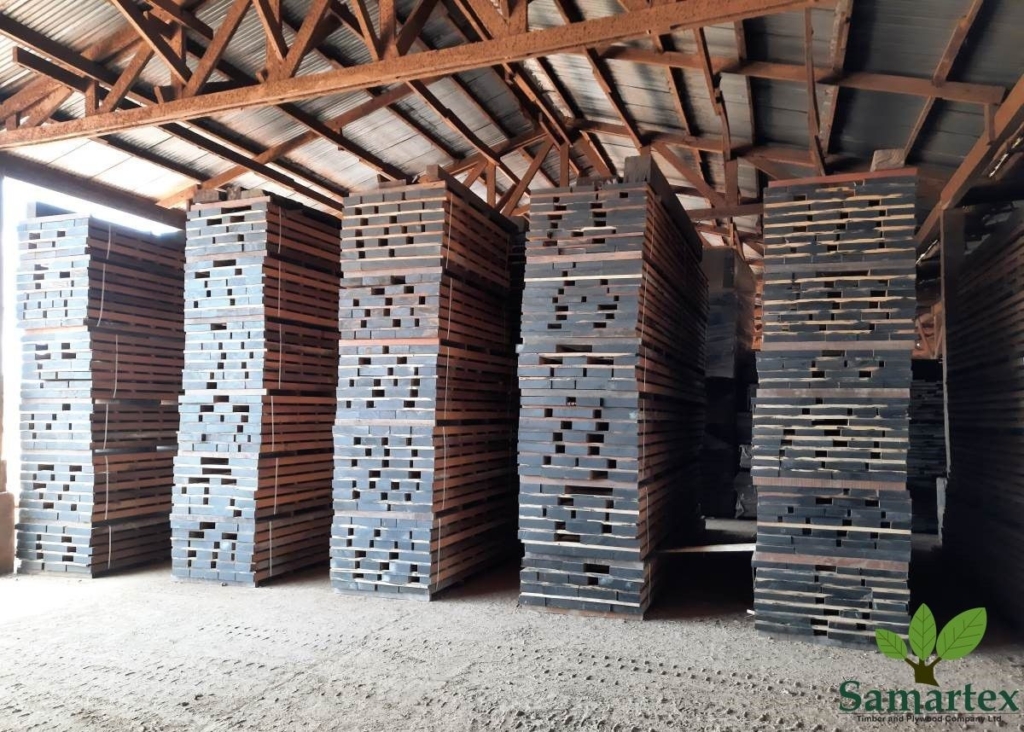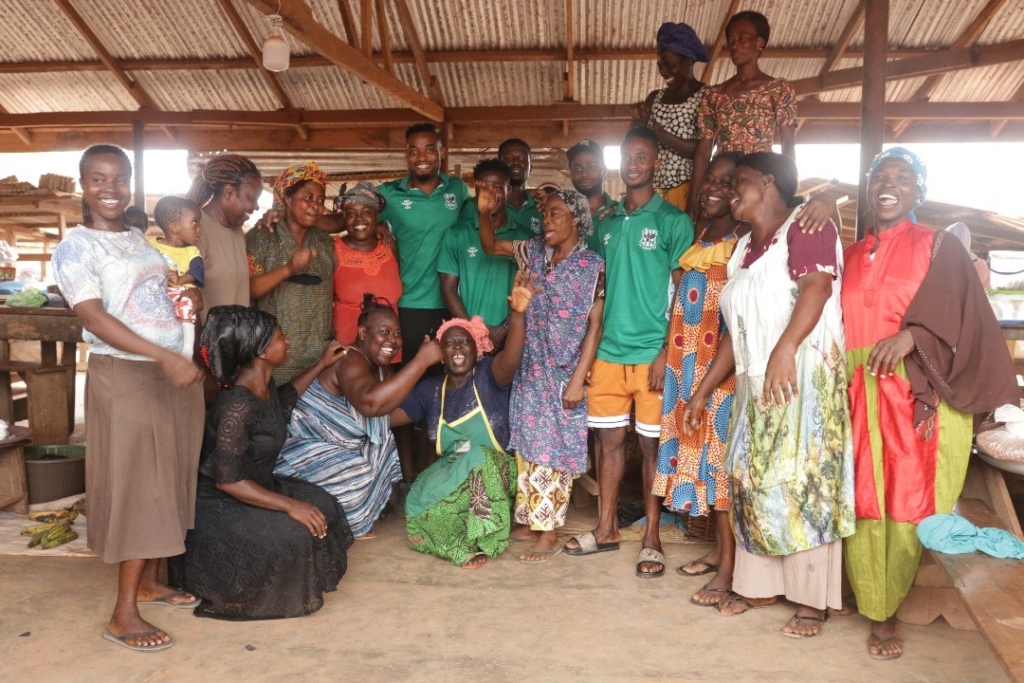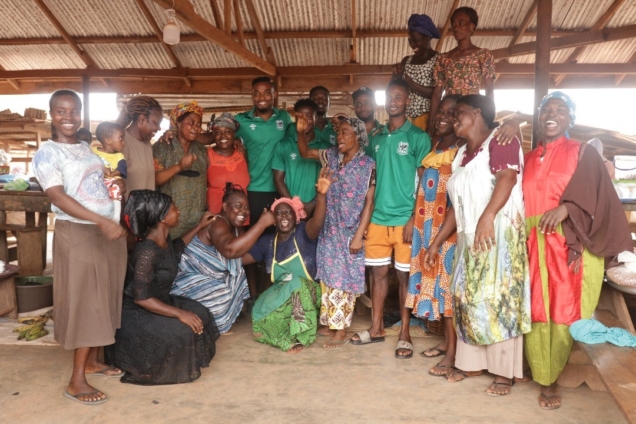In 2018, the ubiquitous Michael Geiger, Tomomi Tanaka, and Camille Nuamah teamed up for an economic review on Ghana.
It was titled "Ghana’s growth history: New growth momentum since the 1990s helped put Ghana at the front of poverty reduction in Africa".
The article claimed that "Increased agricultural production and human capital development helped deliver Ghana’s rapid and steady decline in poverty. Poverty rates among cocoa farmers declined from 60% in 1991 to 24% in 2005."
The Western Region, where I grew up in the 1990s, was a significant contributor to Ghana's economic growth. Big corporations had emerged to add value to their natural resources for domestic use and importation. Corporations like the West African Mills Company (WAMCO), Dupaul Wood Processing Company, Takoradi Flour Mills, etc. In Essikadu, a few miles from Kojokrom where I grew up, there was John Bitar. Another wood processing company.
I do not know whether they were legally required to, but a number of them made a deliberate effort to hire a significant number of their staff from the host communities. Some offered scholarships for staff to further their education, while others offered scholarships to brilliant but needy students in the community.

A storage room of Samartex Timber and Plywood Processing Company, one of the Western Regions leading corporations
These interventions made them popular among the low and middle class who formed the bulk of the population.
It was not just popularity. The locals felt a sense of belongingness, too.
In 2003, a neighbor was prosecuted for joining several muggers to steal from a wood processing company. He had been identified by two members of the community who had seen them on the company premises, long after their working hours.
Those were the days when the community had intimate knowledge of each member, and even more about the things they cared about, such as where they made their money.
In this instance, however, the "whistle-blowers" did so because their children were direct beneficiaries of the company's interventions.
Such was the level of affinity these organizations enjoyed.
So when one of them; Samartex Timber & Plywood Company Limited, created Samartex 1996 - a football club, building a support base was uncomplicated.
Even in the lower tier division, their games always drew capacity crowds and it was not just out of blind loyalty. People turned up because the football was good.

The Nsenkyire Sports Arena, home of FC Samartex 1996
Before they achieved anything significant, Samartex was always respected because, the football club, like its mother company, was very well run. Regular funding from the Timber company means they have always paid decent salaries and on time. This attracted some of the region’s best talents even if Samartex did not have the name, yet.
As a result, the region’s heavyweights were forced to pay attention. Matches against Sekondi Hasaacas, Eleven Wise, or even Cape Coast Ebusua Dwarfs, now meant more. If the big teams won, they did not pass up the chance to remind everyone of who the real power was. Especially if it happened in Samreboi.
After both Hasaacas (in 2016) and Eleven Wise got relegated, there was a sense that Samartex needed to be checked before they could usurp either as the true football force in the Western and Central regions.
Samartex was one of the few clubs in the lower divisions who could offer professional contracts and honor them. The money kept coming because the company could see the result of their investment - growth.
Their progress drew admirers and enemies alike. Enemies whose failings, had largely been blamed on obsolete management practices and money, meant that more than anyone else, they knew the potential Samartex had.
In 2021, Samartex became everything their rivals dreaded. The club made a few changes. Edmund Ackah, a football administrator with decades of experience was hired as Chief Executive. Ackah had previously served on Kotoko and Medeama S.C’s management teams.
Paul Akwasi Anyaba, a progressive mind who gave up the cassock for football, was hired as Business Development Manager.

Paul Akwasi Anyaba - Samartex’ ambitious Business Development Manager
Before his appointment, Anyaba had superintended Skyy FC’s rise to prominence, finishing second in Division One Zone Three. So Samartex went for Anyaba, whose success at Skyy denied them qualification. In these two, Samartex had a blend of traditional and progressive minds who knew the Ghanaian game inside out.
They understood the concept of talent and what it means to their fans, but also the kind they can compete with and possibly transfer for good money. Their knowledge was not only limited to that but also where to find these players and who gets them first in the food chain.
Paul Anyaba, beyond all he brings, is also a notoriously shrewd negotiator.
Together, the pair set about, with Henry Wellington as coach, to secure Ghana Premier League qualification. They did it within a year.
In their first season in the topflight, Samartex continued the trend of signing some of the country’s best talents. Isaac Afful (left back), Richard Baidoo (goalkeeper), and Emmanuel Keyekeh (midfielder) joined from Skyy FC, Hearts of Oak, and Asante Kotoko respectively. In the end, they settled for a respectable 10th place. A year later, they added the hottest commodity on the local scene, Evans Osei-Wusu from Tema Youth. Baba Hamadu Musa, a born finisher at Skyy FC, was also signed.
In keeping with the mother company’s commitment to local content, Samartex has three players from the community on the team. One of the three; Francis Gyetsuah, has featured 26 times in the league this season. Up to seven of the 23 first-team players are from the Western region. Signings like Ebenezer Ocran, a popular figure in the region, have advanced the club’s agenda in communities far and near.
But smart recruitment is not all there is to Samartex. They have a robust structure that is immune to shocks such as sudden exits of key personalities. In the last two years, they changed CEO, General Manager, and three coaches – Henry Wellington, Annor Walker, and Nurudeen Amadu. At other clubs, such changes would be the excuse for failure disguised as a transition.
At Samartex, change is the catalyst for the next level.
At Samartex, the more things change, the more they remain the same.

Samartex mercurial pair of Evans Osei-Wusu ‘Capito’ and Baba Musah ‘Armando’
In keeping with the mother company’s commitment to local content, Samartex have three players from the community in the team. One of the three; Francis Gyetsuah, has featured 26 times in the league this season. Up to seven of the 23 first team players are from the Western region. Signings like Ebenezer Ocran, a popular figure in the region, have advanced the club’s agenda in communities far and near.
But smart recruitment is not all there is to Samartex. They have a robust structure that is immune to shocks such as sudden exits of key personalities. In the last two years, they changed CEO, General Manager, and three coaches – Henry Wellington, Annor Walker, and Nurudeen Amadu. At other clubs, such changes would be the excuse for failure disguised as transition.
At Samartex, change is the catalyst for the next level.
At Samartex, the more things change, the more they remain the same.
Their growth has not been at the expense of the very ideals that served them well in their formative years. They have stayed true to their founding identity. It reflects how they remain in constant touch with the community. This allows them to build a close relationship with the new generation of football fans in the hope that they will choose Samartex as the club to support. Ahead of their league match with Nations FC, the club took their community engagement activities to the Samreboi central market in an exercise of its long-standing tradition.
Sound management principles.
An admirable cussedness and devotion to tradition.
Strong community engagement.
And a practical sporting philosophy that even the relationship manager at the timber company understands.

Players of FC Samartex 1996 fraternize with market women in Samreboi
Sound management principles.
An admirable cussedness and devotion to tradition.
Strong community engagement.
And a practical sporting philosophy that even the relationship manager at the timber company understands.
That is how the latest Ghana Premier League champions were forged.
That is how the latest Ghana Premier League champions were forged.
The championship campaign itself was forged on the back of a strong domestic form. It is also the one constant in every title-winning season in the past 24 years; the league has been won by one of the best four-performing home teams each time.
Samartex did not only follow that path. They improved it.
The Timber lads have won 15 out of 16 home matches, amassing 45 points out of a possible 48 in the process. That tally is the best home record in the Ghana Premier League in twenty years. The next best home record in that period is Kotoko's 43 points from the 2007/08 title-winning season.In that period, only five teams; Berekum Arsenal (40 points in 2006/07), Aduana Stars (43 points in 2020/21), Bibiani Gold Stars (40 points in 2021/22) Bechem United, and Nsoatreman FC (42 points in 2022/23) have failed to win the league after securing 40 points or more at home.
In terms of goals, Kotoko (34 in 2007/08) are the only title winners to have scored more at home than Samartex (31).
What next? Continuity. Samartex have the resources to fund whatever they want to do next. In the past two years, two of Ghana football’s production houses have disintegrated into nothingness; Liberty Professionals and West Africa Football Academy.
What next? Continuity.
Samartex, the timber company, and not the football club, has the resources to fund whatever the club wants to do next. It is therefore important that the club begins to actively pursue financial independence. For Ghanaian clubs, there is a well-traveled path. An old, yet relevant and effective trick in the book; is revenue from player transfers.
In the past two years, two of Ghana football’s production houses have disintegrated into nothingness; Liberty Professionals and West Africa Football Academy. These clubs made their name as model football clubs that could identify world-class talent and sell them for top dollar. They have collapsed but the markets they served still exist, with even more appetite for talent. In their absence, their 'clients' have been forced to look elsewhere. That is one area Samartex could explore.
Samartex Timber and Plywood Processing Company, the club's main financier, has the resources to put the infrastructure in place for such a project. For that, they may need a few more training pitches, hostel facilities, gym etc. Money for that would have to come from the mother company, as the club itself does not make enough.
Per the GFA’s announcement last year, Samartex will earn a meager GHc 500,000 as prize money. Yeah. Just under $34,000.
Sources say the club is expanding its pool of scouts, ostensibly to have first-hand access to the best talents, especially from the northern belt.
Likely, this is not the sum of their ambitions. Whatever it is, Samartex has everything in place to attain it. They only to need reach for it.
Latest Stories
-
DAMC, Free Food Company, to distribute 10,000 packs of food to street kids
53 minutes -
Kwame Boafo Akuffo: Court ruling on re-collation flawed
1 hour -
Samuel Yaw Adusei: The strategist behind NDC’s electoral security in Ashanti region
1 hour -
I’m confident posterity will judge my performance well – Akufo-Addo
1 hour -
Syria’s minorities seek security as country charts new future
2 hours -
Prof. Nana Aba Appiah Amfo re-appointed as Vice-Chancellor of the University of Ghana
2 hours -
German police probe market attack security and warnings
2 hours -
Grief and anger in Magdeburg after Christmas market attack
2 hours -
Baltasar Coin becomes first Ghanaian meme coin to hit DEX Screener at $100K market cap
3 hours -
EC blames re-collation of disputed results on widespread lawlessness by party supporters
3 hours -
Top 20 Ghanaian songs released in 2024
4 hours -
Beating Messi’s Inter Miami to MLS Cup feels amazing – Joseph Paintsil
4 hours -
NDC administration will reverse all ‘last-minute’ gov’t employee promotions – Asiedu Nketiah
4 hours -
Kudus sights ‘authority and kingship’ for elephant stool celebration
4 hours -
We’ll embrace cutting-edge technologies to address emerging healthcare needs – Prof. Antwi-Kusi
5 hours

